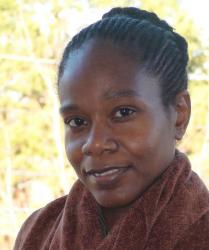Culture
Edging A Way into the Growing Natural Hair Industry
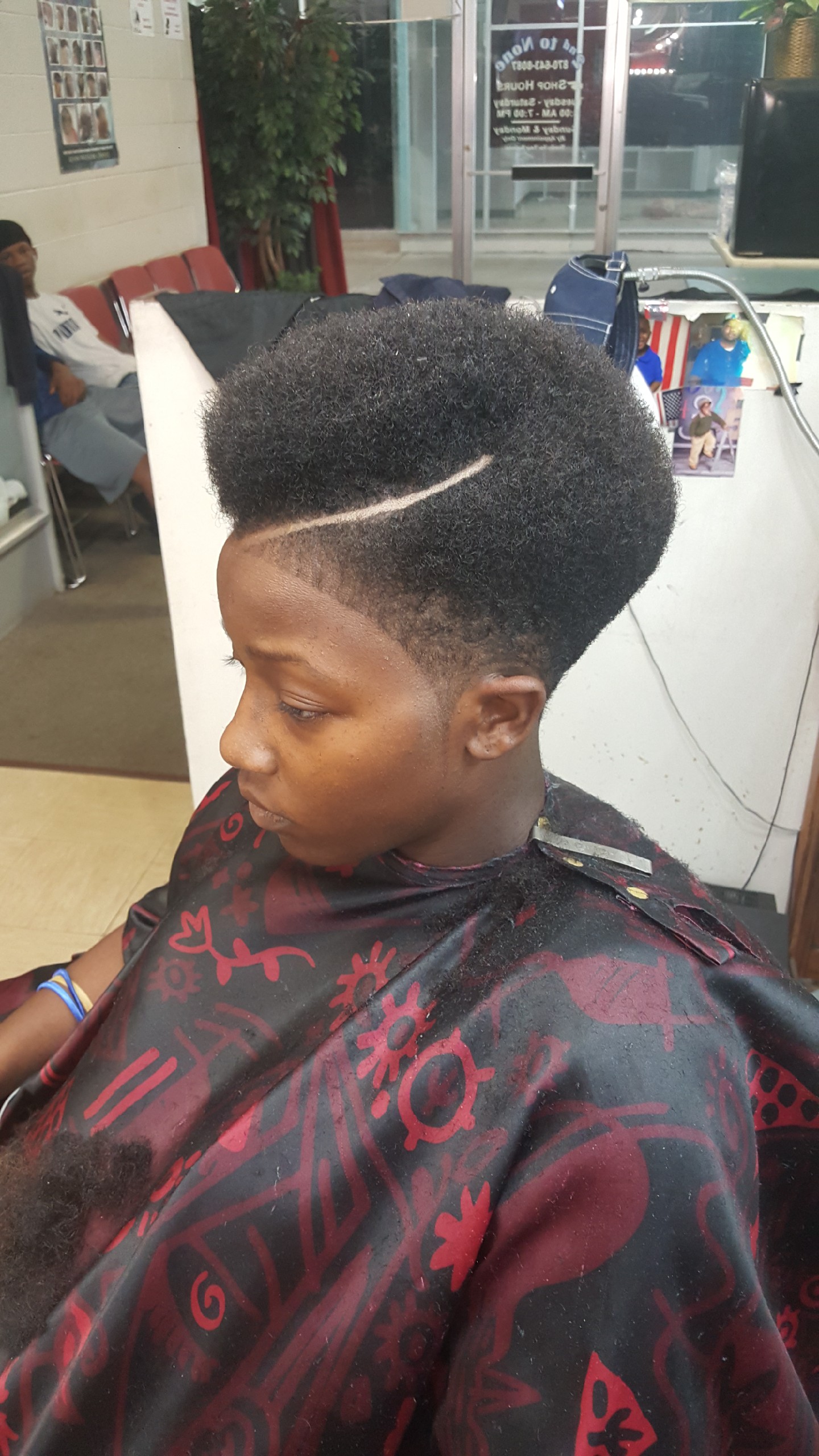
For Keith Mills having the right image was important. But after years of fighting with his thinning hair, the aspiring actor gave up.
“I didn’t know what to do. I thought it was genetics, that it was over for me,” he said. So, he shaved his head. But he didn’t like being bald. He wanted to grow back his hair and stop it from thinning. It was his fiancée, Allison Watkins, who provided the solution.
Watkins had been trying to find a way to lengthen her hair. And after two to three years of adding and mixing various ingredients, she produced a growth oil that helped her hair grow from her chin to her waist. Mills gave it a try. He rubbed the oil onto his scalp nightly, spending three to five minutes massaging the thinning spots. Within a month, he saw results.
“I was so excited,” Mills said. “When people are extremely happy, they like to share it with the world.” And so, he did. He spoke about the product on Snap Chat, with his friends and co-workers. Their response surprised Watkins.
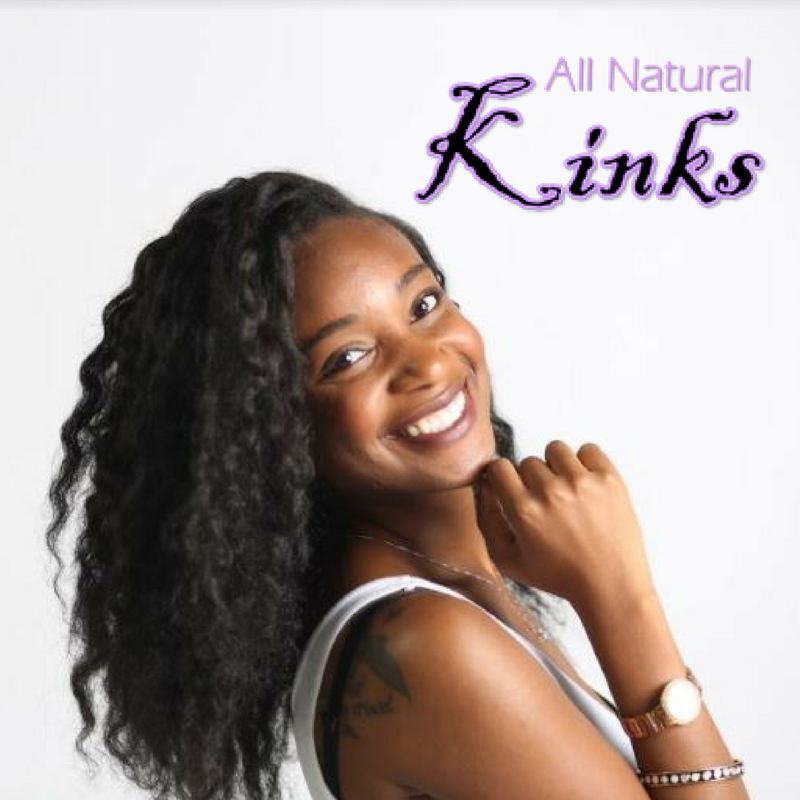
“I didn’t expect to get any results,” Watkins said. But then people started asking for her products. And in 2017, Watkins began edging her way into the billion-dollar natural hair care industry with her company, All Natural Kinks. But by then the market was already inundated with natural hair care products with Black consumers spending an estimated $2.56 billion on hair care products in 2016, according to a 2017 article by the Los Angeles Times.
Natural hair, unadorned, uncolored, untouched by chemicals, had become mainstream. In 2016, 71 percent of black adults in the United States wore their hair natural at least once, according to the research firm Mintel.
A Changing Industry
The owner of Epix Hair Salon in Atlanta, Debra Brown, said in the last five to six years her business has changed from 30 percent of her clientele wanting natural hair to 90 percent. Most of the older clients do it for health, wanting to limit the chemicals they put in their bodies, Brown said. For most of the younger ones, it’s a source of pride, she. But no matter the reason, the market has been responding.
“Investments from beauty industry giants have helped natural hair products move from specialty stores to the shelves of major retailers such as Target, Wal-Mart and CVS – making it easier for customers to get their hands on what were once niche products,” according to the Los Angeles Times.
At first, Watkins, who lives in California, found the competition daunting.
“Because there is so much out there,” Watkins, 30, said. But then something changed. “I felt like I had a different voice. It felt different because of the success I had with my hair. I grew my hair from chin length to waist length. You don’t see a lot of business owners who have done that.
“You don’t see a lot of business owners with my texture and my journey.”
Soon, she wasn’t only getting customers in the United States, she had customers from as far away as Guyana, France, Sweden, Canada, Russia, and Martinique.
But while making a profit is the goal, Mills, who now sports the Black Caesar hairstyle, said he saw the need for her products. “She can help black people, and not just women, but men as well.”
Watkins who has coarse, dry hair tried a variety of products and took vitamins to grow her hair. Then she started mixing and matching to make her own. She began doing research to find out what would stimulate the hair follicles, reading articles online and watching videos on YouTube until she came up with a product that worked for her. Her family and friends loved it. Within months, she made three more products, a shea butter hair sealant, a leave-in conditioner and a spray.
And she began meeting them, women like her who were struggling with how to care for their hair, and their daughters’ hair.
“I’ve always wanted to help others with their journey and this gave me that avenue,” Watkins said.
For many black women, sometimes it’s a struggle to find the right solution for their hair textures. Watkins said black people have six different hair types.
Finding a Solution
Amia Henderson said though she had a lot of hair, she never knew what to do with it. For a long time, she wore weaves, spending $500 to $600 every month. Then her daughter came along.
“I wanted to learn how to take care of my hair, so I could learn how to take care of my daughter’s hair,” Henderson said.
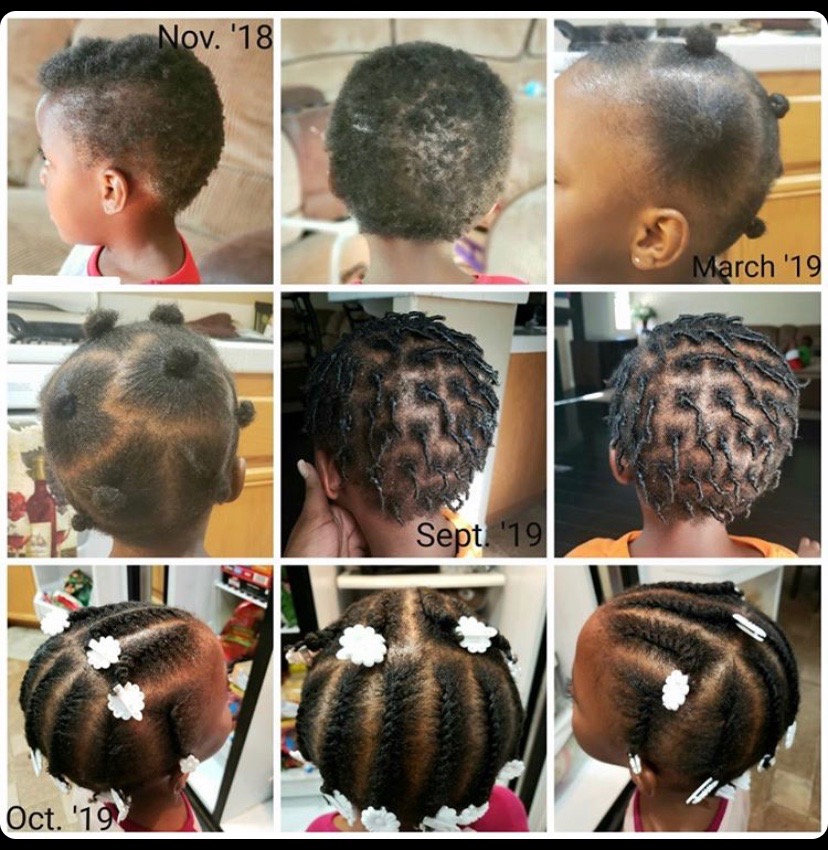
Her daughter’s hair, unlike hers, was short and prone to dryness and she also had balding spots.
“You could see her scalp because her hair was so thin,” Henderson said. But after months of using Watkins’ products on a daily basis, “she has length and thickness and a lot of moisture in her hair. She no longer had breakage. I’m able to do flat twists. Her hair looks so much healthier,” Henderson said.
Kiera Clark said for years she had bumps on the back of her head and then a fungus on top of her head. A dermatologist gave her medication to remove the fungus, but her hair began falling out and the bumps remained.
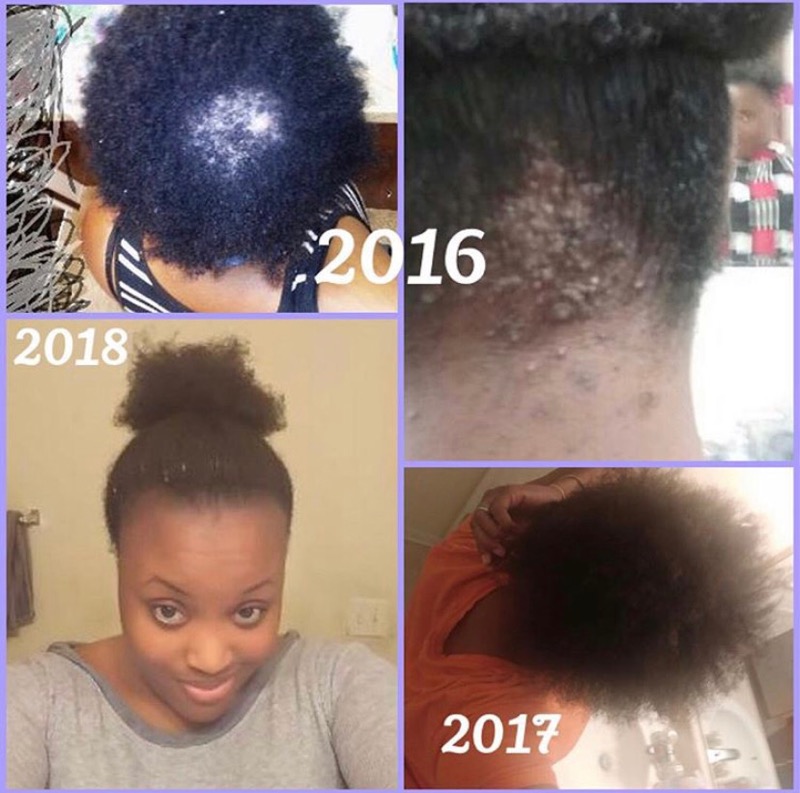
“I was ordering all kinds of products. They were natural,” Clark said. But something was causing her irritation. Then she discovered Watkins’ products and started using it in her and her daughter’s hair. Now Clark said she has a ponytail.
Still, despite the growing popularity of having natural hair, there is still that subdued, but steady, belief that natural hairstyles such as afros, braids, cornrows and dreadlocks, are unacceptable, unprofessional and even ugly. But, in some states, legislation is being passed to protect natural hair wearers from what many consider discriminatory practices in the workplace.
It’s a belief taught by society and passed down among generations, said Brown who used to watch how her mother would single out her lighter-skinned cousin to compliment her about her soft long hair. She called it good hair, Brown said. But the hairstylist has a different take.
“Good hair is healthy hair,” Brown said. “Not soft hair or curly hair.”
Watkins said her hair was tied to her self-image. For years she believed she was ugly because of her short, coarse hair.
“My hair isn’t pretty, so I’m not pretty,” said Watkins who believed she would be more popular with long hair. But when her hair grew longer, nothing changed. She didn’t get the attention she thought she would. “The attention didn’t change until I got good with myself,” she said.

-

 Featured12 months ago
Featured12 months agoArkansas Sheriff Who Approved Netflix Series Says He Stayed ‘In His Lane’
-
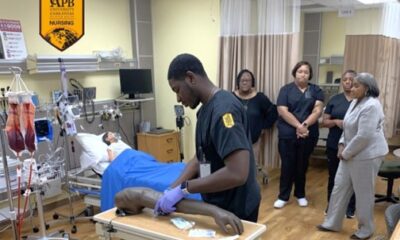
 HBCUS12 months ago
HBCUS12 months agoSenator Boozman Delivers $15 Million to Construct New UAPB Nursing Building
-

 News12 months ago
News12 months agoMillions In the Path of The Total Solar Eclipse Witnessed Highly Anticipated Celestial Display
-

 Featured9 months ago
Featured9 months agoCalifornia Is the First State to Create A Public Alert for Missing Black Youth
-

 Featured9 months ago
Featured9 months agoAfrican American Leaders Stay the Course Amid Calls for President Biden To Bow Out of Race
-

 Featured9 months ago
Featured9 months agoThe Debate Fallout Lands on Both Candidates

